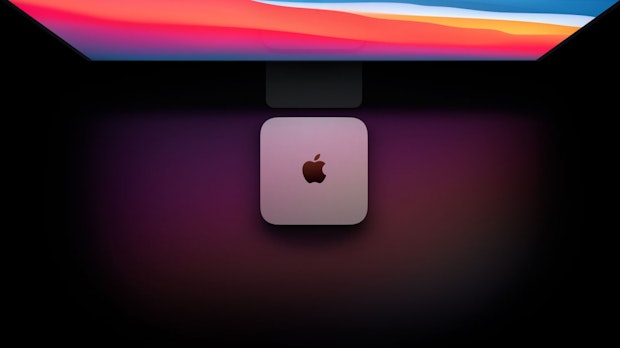Notes in MacOS 11.3: Apple could switch off Rosetta 2 for M1 Macs in some regions

With the introduction of the new M1 chip architecture for Apple’s Macs in November, the group has a translation on the software side -Tool called Rosetta 2 deployed in MacOS 11 Big Sur. The upcoming update to version 11.3 indicates that Apple may have to remove the tool in some unspecified regions. This means that some x86 applications that have not yet been adapted to the new software platform could no longer be executed on the M1 computers.
MacOS 11.3: Rosetta 2 will apparently be switched off soon
Macrumors author Steve Moser found notes in the third developer beta version of MacOS 11.3 that says Apple will remove its Rosetta 2 translation software from its Mac operating system.
The strings in the macOS assets are clear: “Rosetta will be removed when installing this update.” Another string says: “Rosetta is no longer available in this region. Applications that require Rosetta will no longer run. “Apple did not leave any further details in the MacOS beta as to the regions in which Rosetta 2 will no longer be available in the future.
Apple is removing Rosetta from Macs during updates in certain countries in Mac 11.3 beta 3. Maybe this is due to legal issues? “Rosetta will be removed upon installing this update” “Rosetta is no longer available in your region. Applications requiring Rosetta will no longer urn ”pic.twitter.com/NmsjXOwPvP
— Steve Moser (@SteveMoser) March 3, 2021
Rosetta notice in MacOS 11.3 Beta: Just a precaution?
So far, Apple has not published an official statement on a possible shutdown, which would be the minimum to warn users of an upcoming possible incompatibility of their software. As 9to5 Mac suspects, the integration of the hints could only be a precautionary measure in case Apple should be confronted with a corresponding restriction in the future.
Steve Jobs’ last move: You have to know that about Apple’s M1 chip
Legal trouble could be Get Apple from Intel, as happened to Microsoft in 2017, when the Redmond-based company introduced a similar but less powerful emulation for x86 applications while working on its Windows-on-ARM platform. At the time, Intel claimed that the x86 architecture had proprietary technologies and could not be emulated on other processors without Intel’s permission.
At the beginning, Windows 10 ARM only supported the emulation of 32-bit apps of the x86 architecture. Microsoft recently integrated support for 64-bit apps with an Insider Preview build. It is speculated that the expansion could be related to Intel’s patents.
Apple could deal with its Rosetta-2 -To set technology to a similar dispute, believes 9to5 Mac. In the last few months it has at least become clear that Intel is not particularly happy that Apple is relying on its own chips.
More on the subject: Macs and Macbooks with M1 chip: This is how you can find out whether your apps are compatible are
Most read
The post Notes in MacOS 11.3: Apple could switch off Rosetta 2 for M1 Macs in some regions appeared first on World Weekly News.
